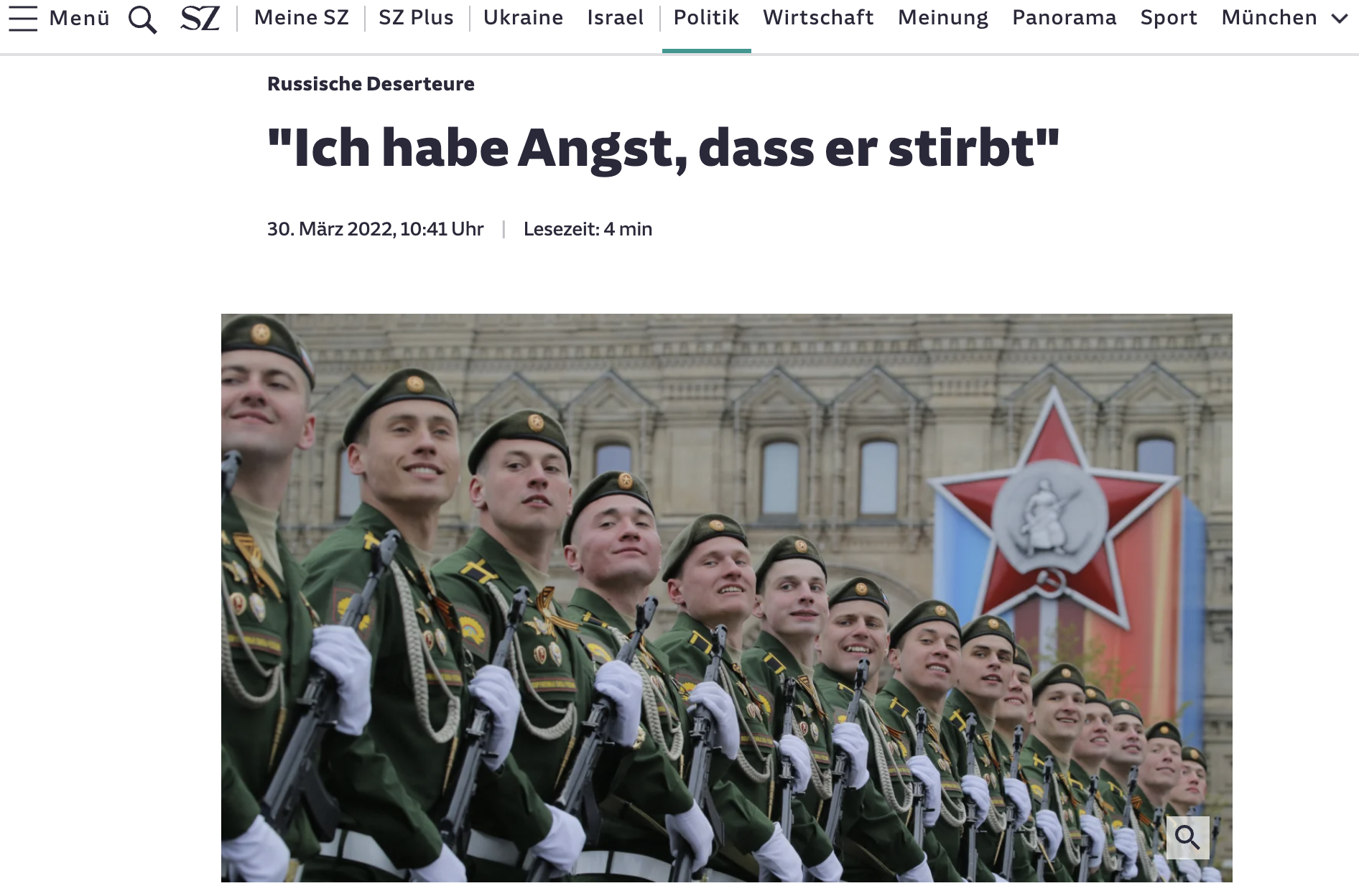The Russia-Ukraine ConflictThe Russia-Ukraine Conflict
Chapter 12
Conscientious objection to military service in Russia - and then?
by Luisa Nembach
Conscientious objection to military service in Russia - and then? (1/6)
Unreasonable!

Tweet by Federal Minister of Justice Marco Buschmann from September 21, 2022: "Apparently many Russians are leaving their homeland: Those who hate Putin's way and love liberal democracy are very welcome in Germany. #partial mobilization"
Russian conscientious objectors can apply for asylum in other countries, even though - or precisely because - Russia is waging a war of aggression in violation of international law. It is unreasonable to expect anyone to have to fight in such a war.
Conscientious objection to military service in Russia - and then? (2/6)
Who is a refugee?
The Geneva Refugee Convention has an answer.
According to the Geneva Refugee Convention, every person is a refugee who "[...] owing to well- founded fear of being persecuted for reasons of race, religion, nationality, membership of a particular social group or political opinion, is out-
side the country of his nationality and is unable or, owing to such fear, is unwilling to avail himself of the protection of that country."
Conscientious objection to military service in Russia - and then? (3/6)
Are Russian conscientious objectors persecuted because of their political convictions?

https://www.sueddeutsche.de/politik/russland-ukraine-krieg-deserteure-asyl-1.5556008?reduced=true
Süddeutsche Zeitung, a German newspaper, of 30.3.2022: "Russian deserters - I'm afraid he'll die"
Illustration: Marlin Beringer
Legally, such "persecution" is affirmed if there is a threat of a disproportionately long prison sentence, such as the prospect of ten years in prison for conscientious objection to military service. Furthermore, persecution is assumed if a war "[...] is condemned by the international community as contrary to the basic rules of human conduct."
Furthermore, persecution is assumed if a war "[...] is condemned by the international community as contrary to the basic rules of human behavior."
Conscientious objectors in Russia are often classified as opposition members by the Russian authorities. This confirms a connection with their political convictions and usually allows for the German authorities to assume political persecution.
Conscientious objection to military service in Russia - and then? (4/6)
What to do in the event of a travel ban?
Illustration: Marlin Beringer
Most Russians currently find it difficult to leave Russia and flee. Male Russians of military age are only allowed to leave Russia in exceptional cases.
For those who do manage to cross the border, the situation is complicated by the decline in the number of tourist visas granted to Russians by neighboring countries. Recognition as a refugee is only possible outside Russia; conscientious objectors must therefore first be able to leave their country.
Conscientious objection to military service in Russia - and then? (5/6)
Not an easy path...
Illustration: Marlin Beringer
National authorities often place high demands on asylum seekers, such as certificates stating that they have been called upon to perform acts that violate basic rules of human behavior in Russia or official letters from Russian authorities regarding conscientious objection to military service. But no one can present such papers.
Conscientious objection to military service in Russia - and then? (6/6)
92 out of 3500!

https://www.tagesschau.de/investigativ/panorama/russland-kriegsdienstverweigerer-asyl-100.html
Headline on tagesschau.de, a German broadcasting station. from November 21, 2023: "Conscientious objector: No asylum - despite fleeing Putin's war"
It is unclear whether this practice has changed in the meantime.
Since the beginning of the war, 3,500 Russian men of military age have applied for asylum in Germany. So far, only more than half of the applications have been granted. Protection has only been granted to 92 men.